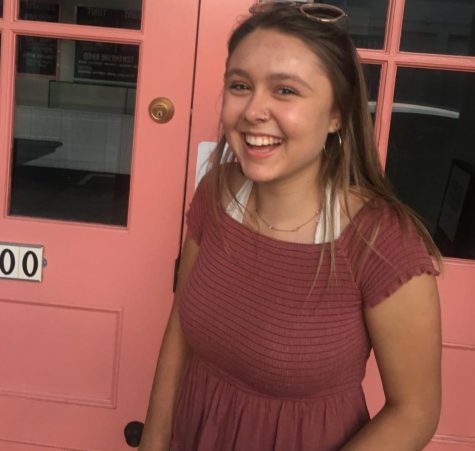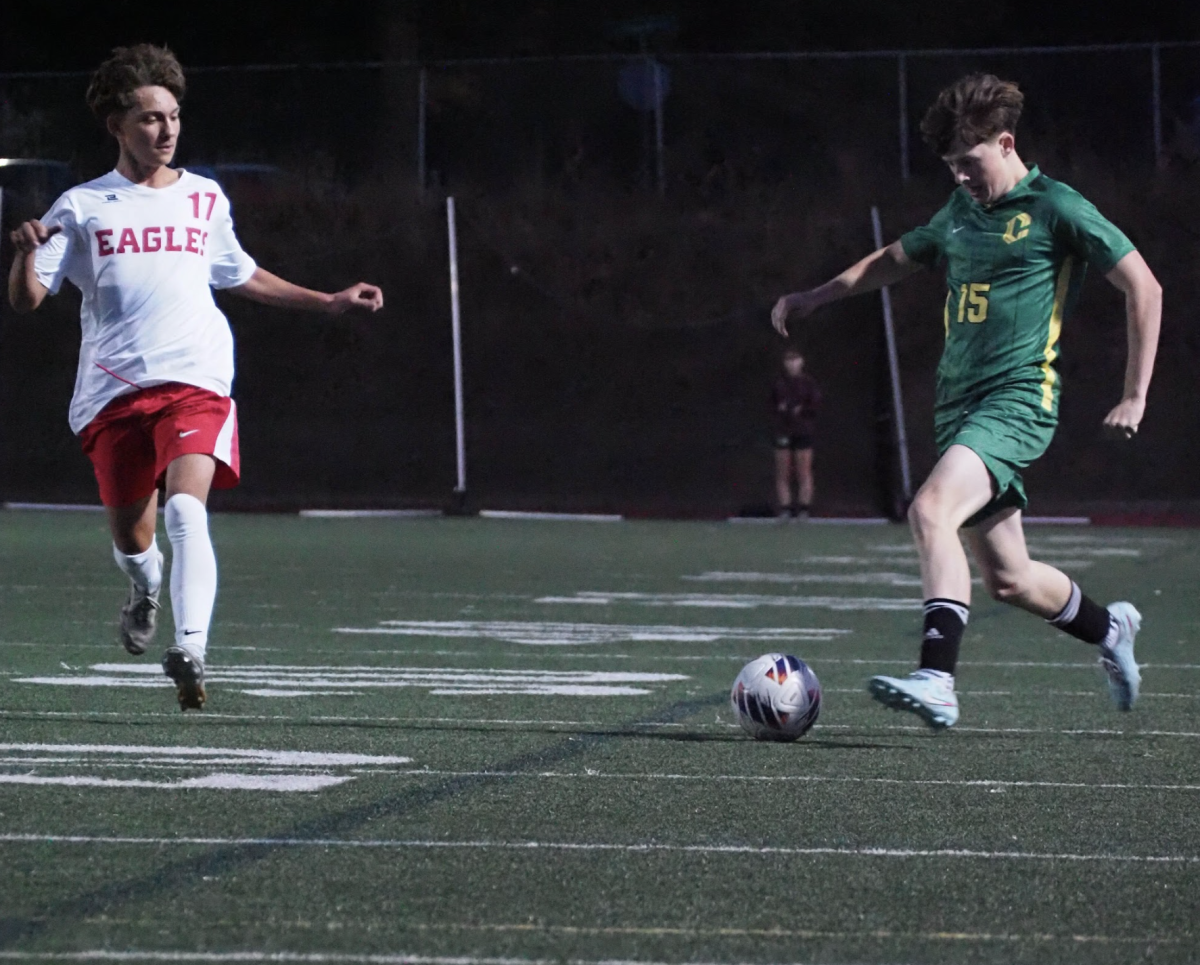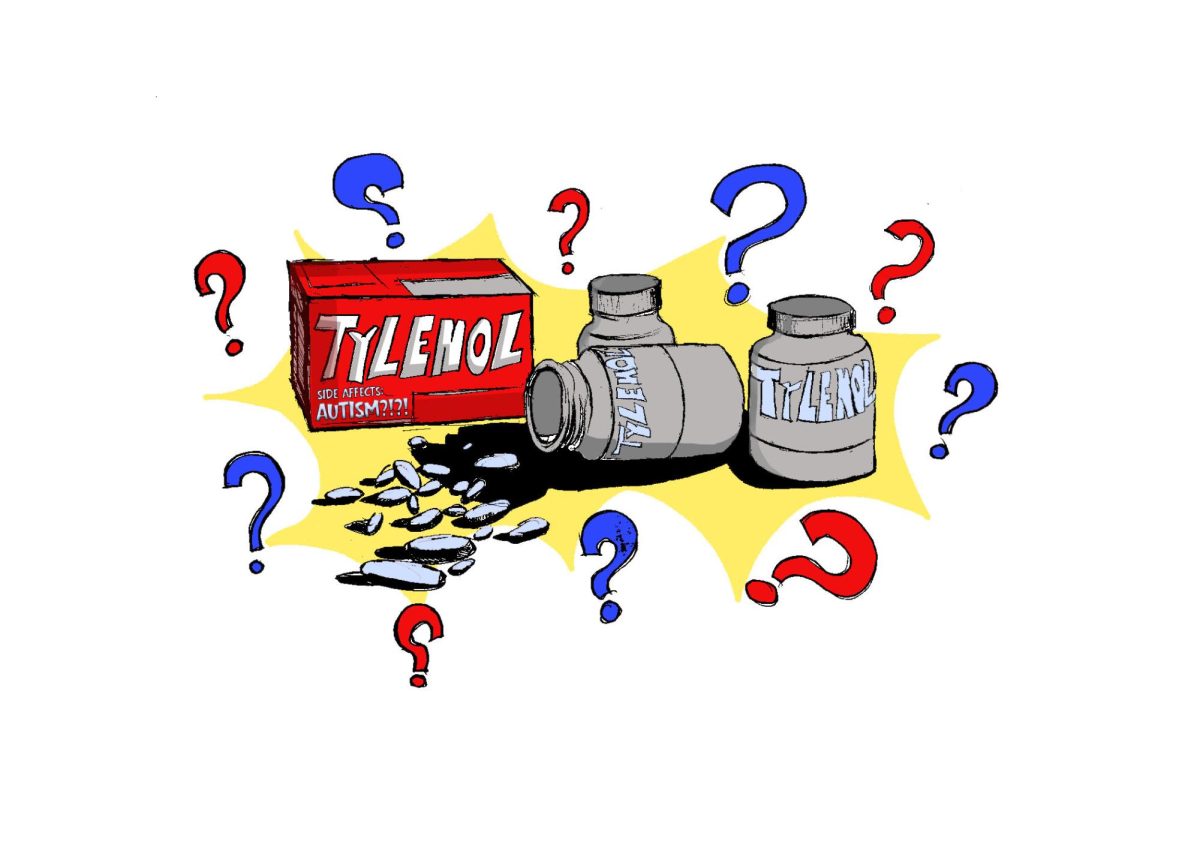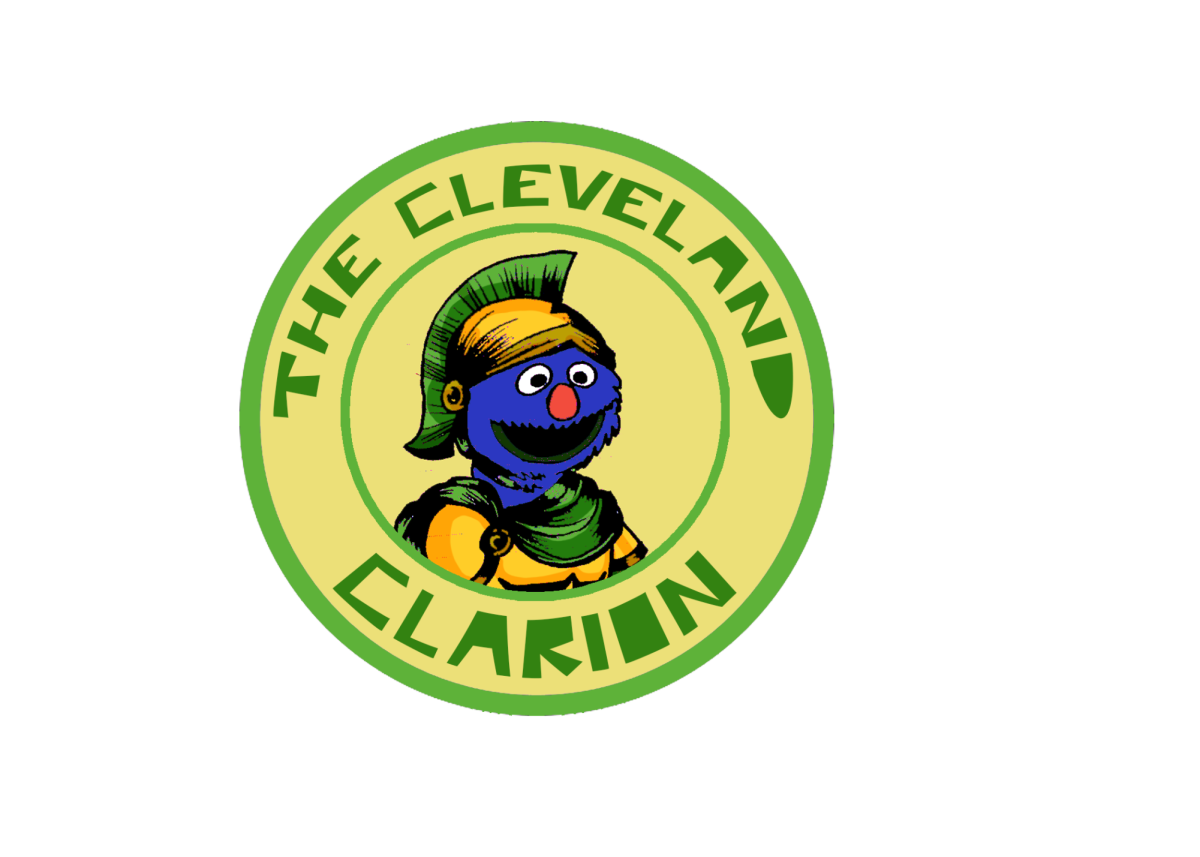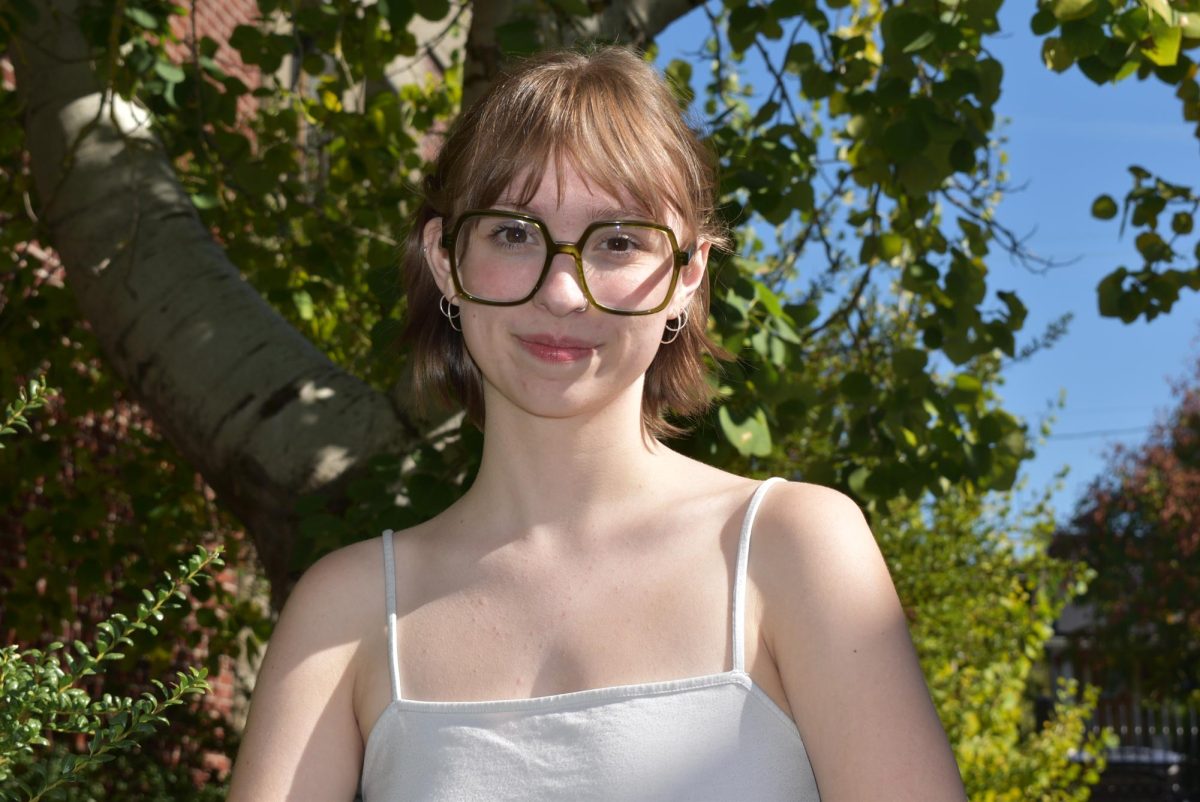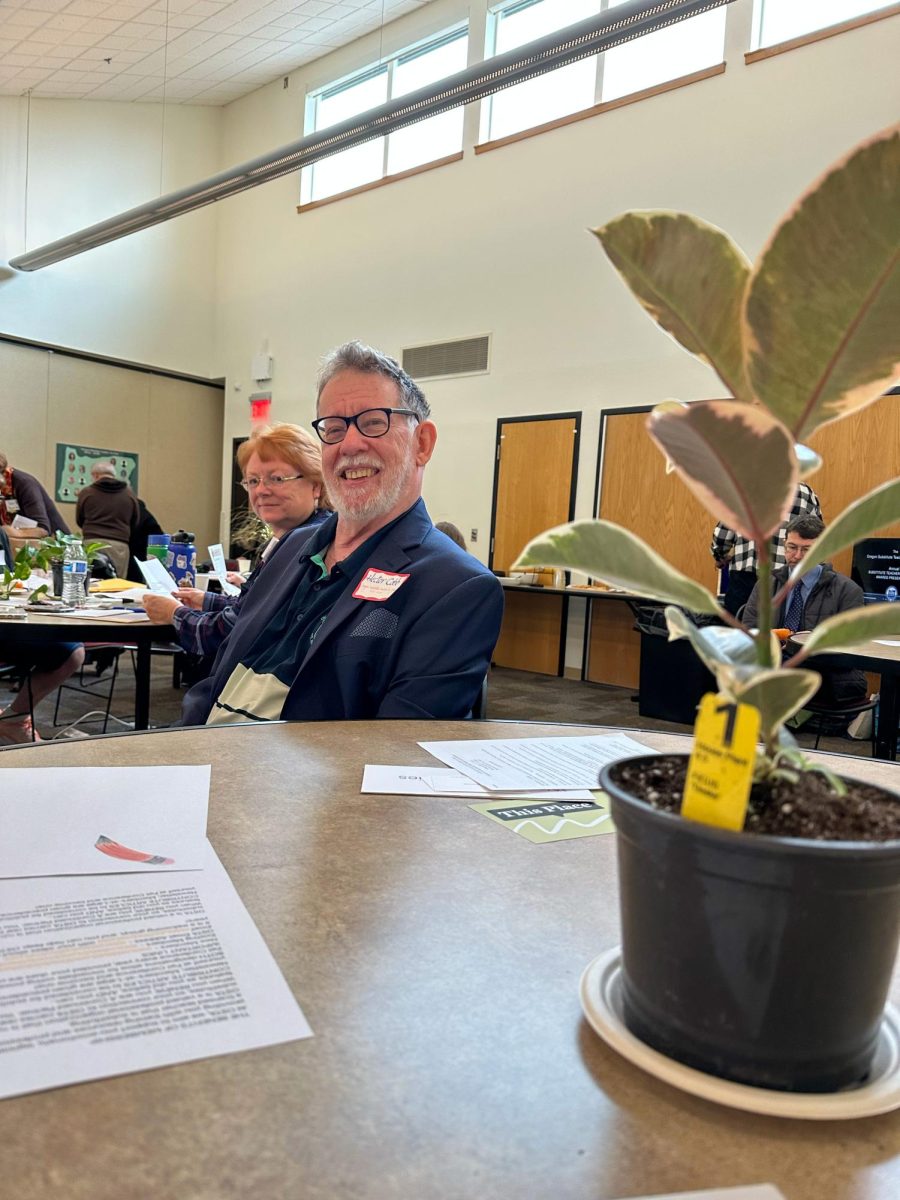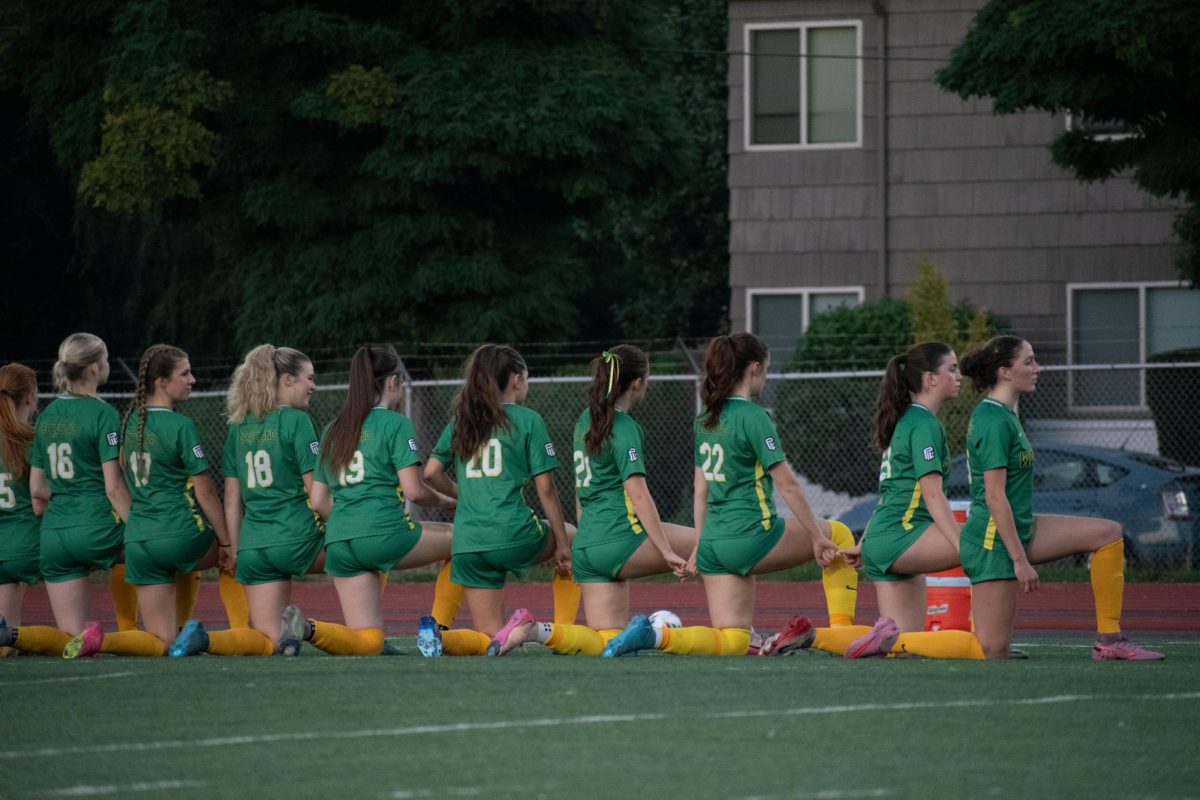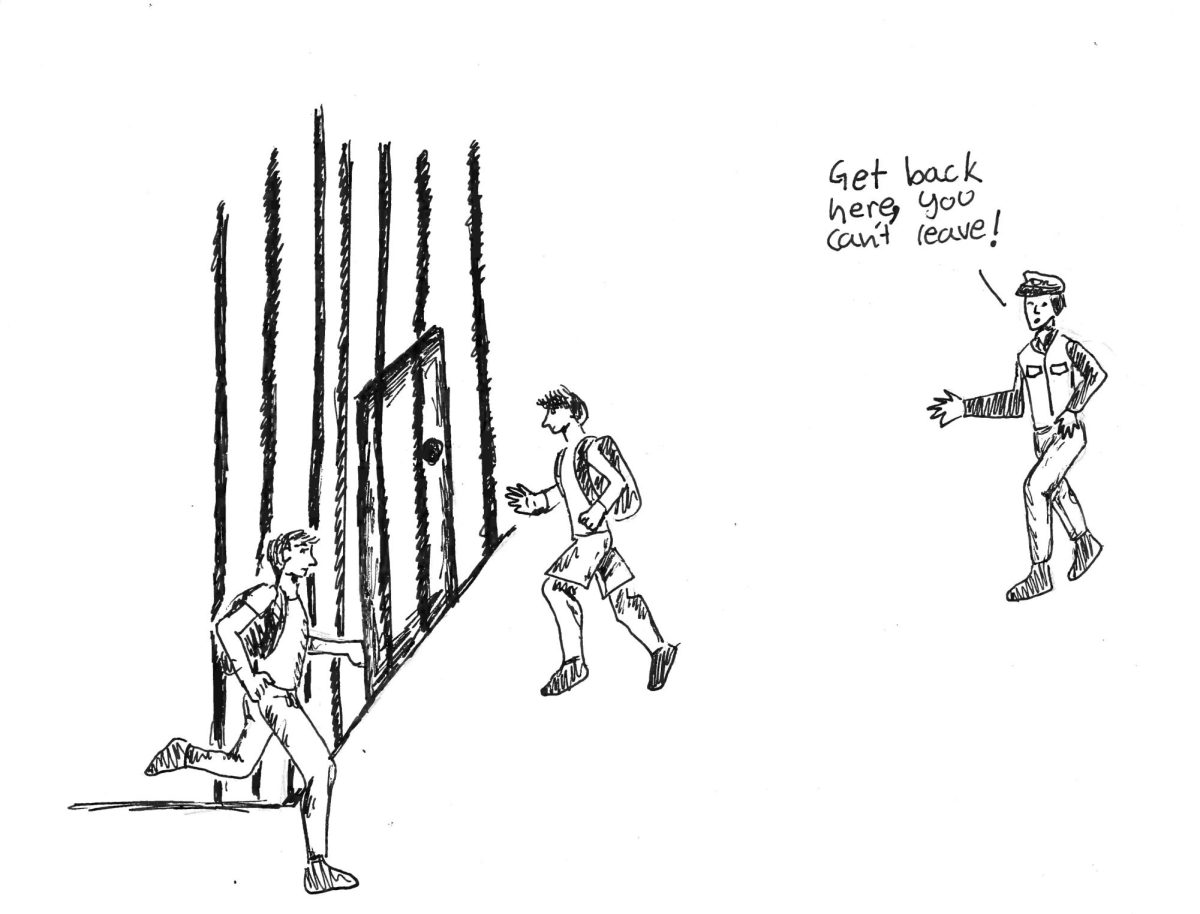The Verses of Verselandia
June 8, 2018
The night of Wednesday April 11 was Cleveland’s seventh annual Verselandia poetry competition. Held in the library, Verselandia is an opportunity for students to share their art and express their ideas. This year there were 10 competitors with a judging panel comprised of special guests and Jan Watt. The first place winner was junior Maggie McBride, followed by senior Pocket Patino in second place, and finally by third place runner up and alternate city wide competitor Lana Perice, a freshman.
Students all over Portland competed first at the school level, with each participating school sending its two best performers to compete city wide at the Arlene Schnitzer Concert Hall on April 28.
Each year English teacher John Golden and librarian Brian Smith organize the event for Cleveland. Golden said, “One of the things that’s unique about Verselandia is that when poets are up there performing, the audience is so supportive. Poetry can sometimes be very personal and the audience is always receptive. We clap regardless of how strong the poetry is. There is a winner, but it’s not really about the points. It’s a place where people can feel comfortable taking risks.”
Each competitor this year was asked to perform two poems they had written. Each poem, like the poet had a unique theme for the poetry and take on the competition.
Pocket Patino said, “When I was in middle school, I listened to a performance called ‘Beethoven.’ Seeing someone manipulate language to the point of completely getting meaning across to me was amazing. From then I wanted to have that same level of control of my diction to everyone I talked to and I thought poetry would be a great way to exemplify that.”
Junior Gwen Kaliszewski, another competitor said, “Poetry is important to me because it’s a way for me to express myself and a way for me to heal from challenging times and talk about my life experiences. Writing poetry helps me process the events in my life.”
Maggie McBride said, “Poetry allows me to say things I wouldn’t be able to say in prose or more literal writing. When I’m feeling things I can’t put into words in a very obvious way, it helps me to write poetry.”
Seeing these poets perform is seeing a personal part of themselves.
Our poets also had quite a wide range of themes. From heartbreak to peanut butter and jelly sandwiches, there wasn’t a dull moment.
Patino said, “I don’t really label my poems, I just kind of say them how they come out. My first poem was all about how people tell me that I’m really good at what I do, but at the level I’m at now, I think it’s bad for people to say that. I’ll never be at that extreme level because I think of poetry as a hobby rather than something I’m gonna do with my life.” He added, “One of my lines was ‘I’m no genius, I have quietness.¨ He explained his purpose with the poem, saying, “I just wanted to tell people, ‘hey, I’m not that good at what I do but I can try my best and even if it won’t be remembered for much longer it is here in this moment.”
McBride, who took first, took a more serious and controversial stance with her topic. She explained, “My second poem was about gun violence. I’ve been feeling a lot of different things about gun violence and talked to a lot of people about it and it’s just such a complex and myriad issue that it’s really hard to put into words the emotions that come up surrounding it. There are a lot of facts that come up about how many deaths have happened in a school shooting or gun legislation that is being proposed but it doesn’t really convey the way that it feels to feel like you’re constantly subject to this kind of violence.”
Her poem took on the form of a school day. She wrote about a day in which she goes through each of her classes and feels subject to the issue in different ways. In P.E, she voices never being able to outrun a bullet. For one of her lines she says, “I looked up how much noise a gun makes when it is shot, which is 140 decibels, and then I thought about the fact that when there is a shooting in a disadvantaged community, with higher amounts of people of color or people of low socioeconomic class, there’s not a lot of news about it, people don’t cover the story. I made a connection between the 140 decibels and the fact that our president utters 0 decibels when something like this happens. I hope I was able to create a comparison that makes people think.”
Verselandia is a one of-a-kind event we are lucky to have the opportunity to be a part of at Cleveland; it is a competition, yet the main goal is not simply to see who’s the best. Kaliszewski said, “Even though Verselandia is a competition, everyone there is so supportive and there to hear your art. It doesn’t feel judgemental.”
McBride similarly said, “I’ve seen a lot of slam poetry as community events in the city, but not a lot that that focus on youth. So being able to see people from your own school perform and show off their artistry is really unique.”
The uniqueness of Verselandia is part of what makes it such a desirable event for both performers and observers. Each person gets to decide what they want to take away from the event. Golden said, “I think one of the goals of the event is just to celebrate language. Any time we have an opportunity to take what we learn in the classroom into other contexts is pretty amazing.” This is true and our poets continue to amaze the community each year.
Stay tuned for the April 28 competition at the Schnitz, Cleveland will certainly have some strong voices.



